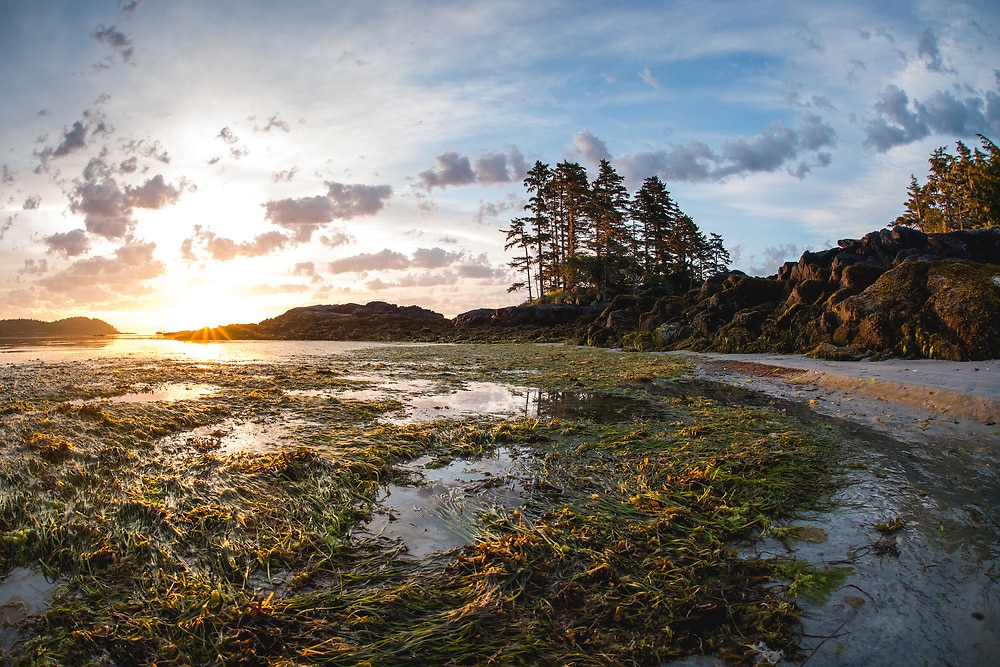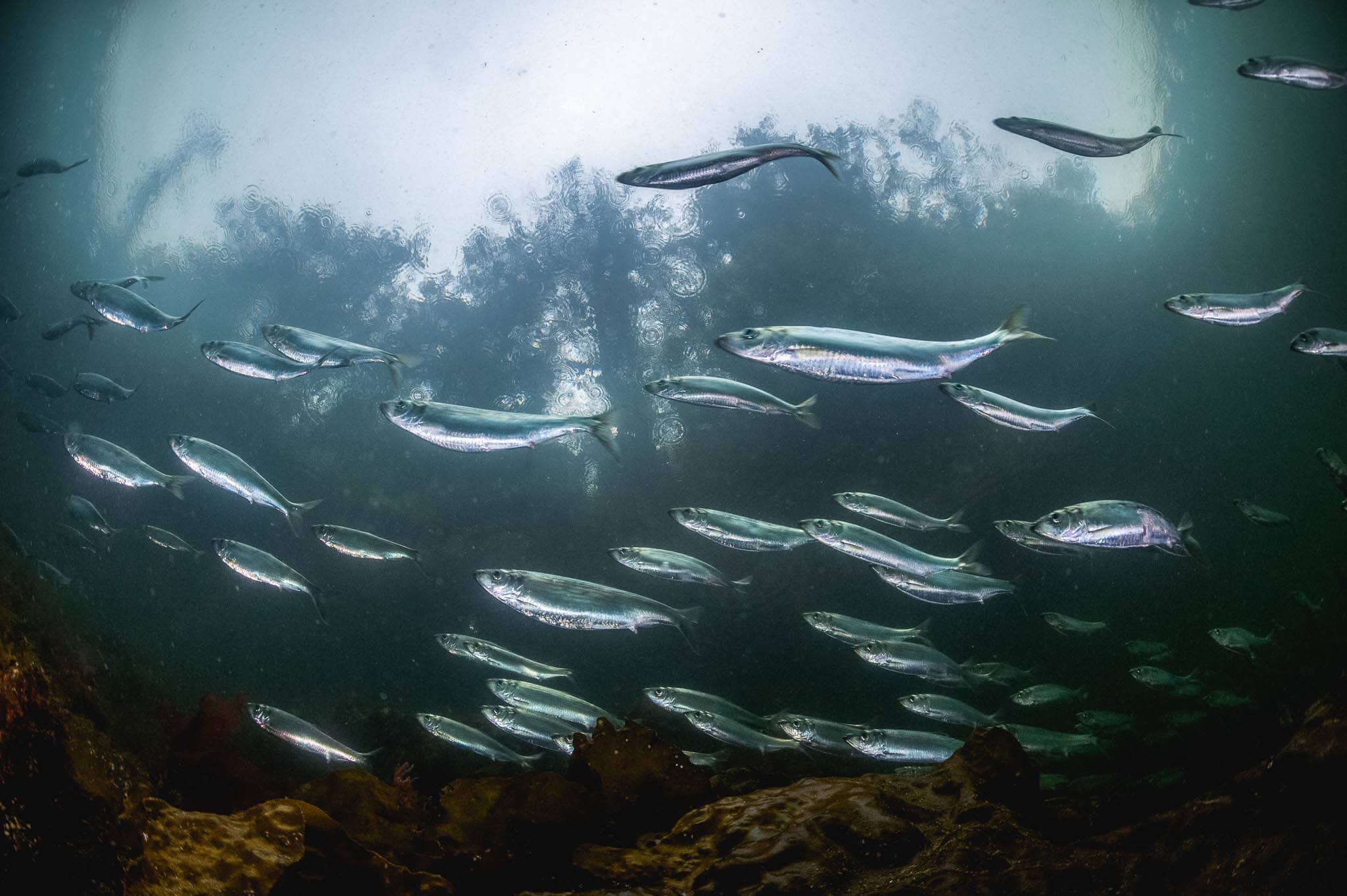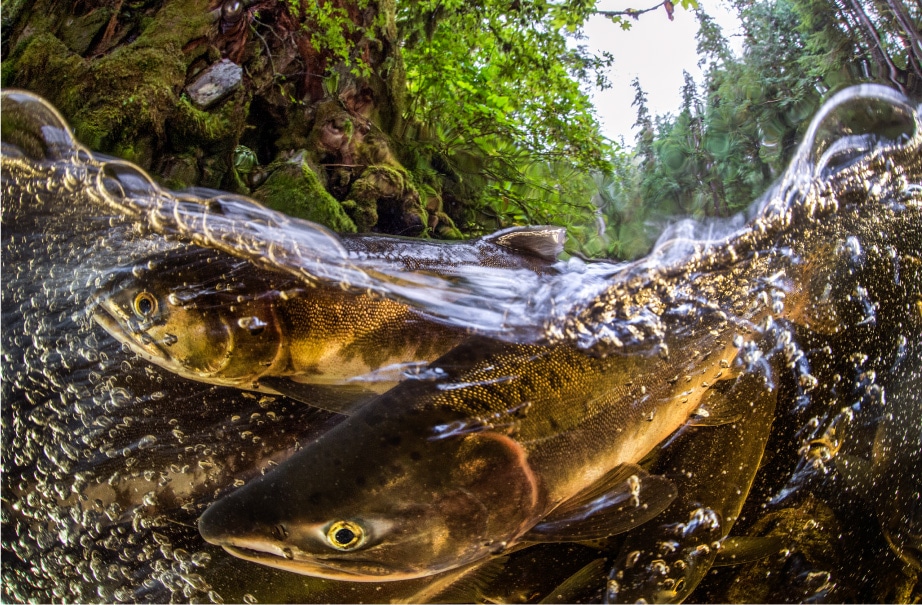In British Columbia (B.C.), home of the majestic Great Bear Rainforest, coastal marine, freshwater, and terrestrial habitats support a tremendous amount of biological diversity.
Bordered on the west by the productive waters of the Pacific Ocean, B.C. is a unique place where marine and terrestrial environments intersect. The province only makes up about 10% of Canada’s land area yet is home to more species than any other province in the country. The reason for such a large assemblage of species is because of the many ecosystem types that range from glacier capped mountains, arid deserts, coastal plains, and lush temperate rainforests – to name a few.
Three-quarters of Canada’s mammal species can be found in B.C. and 24 of them are exclusive to the province. On top of this, B.C. is home to more than 1100 native species of vertebrates including:
- 488 species of bird
- 480 species of fish
- 136 species of mammals
- 20 species of amphibians
- 16 species of reptiles
Source: https://www2.gov.bc.ca/gov/content/environment/plants-animals-ecosystems/biodiversity

Unfortunately much of this is at risk of being lost today. Like many other places in the world, B.C.’s biodiversity is on the decline due human-caused climate change, habitat loss, pollution, and destruction of natural resources. It’s why organizations like Pacific Wild place habitat protection as a critical conservation priority.
Today, on the United Nations International Day of Biological Diversity, we’d like to take the opportunity to highlight some of the biodiversity issues currently facing B.C. — particularly on the coast.
Coastal marine ecosystems make up some of the most biologically diverse and productive wildlife communities on the planet. In B.C., the rugged coastline and intertidal zone provides a rich environment for iconic Canadian wildlife. Undersea kelp forests shelter schools of fish along with invertebrate species that number in the thousands. Just offshore, remote islands also provide the perfect breeding grounds for millions of seabirds that frequent the province in the spring and summer.
The B.C. coast also provides two incredible wildlife events annually.
Every spring, the waters shine with silver as countless tonnes of wild Pacific herring migrate from offshore waters to nearshore bays and estuaries up and down the coast to spawn. While short-lived, herring spawning events provide a huge impact to coastal biodiversity. The concentrations of these #BIGLittleFish attract seals, sea lions, thousands of seabirds and waterfowl, and help feed gray whales on their northern migration.

In the Fall, a host of biodiversity including bears, wolves, eagles, gulls and other wildlife converge in the estuaries and along rivers to feast on returning wild Pacific salmon. As these fish make their journey through rivers and streams to spawn they also bring renewal to the coast, delivering an annual pulse of ocean-derived nutrients.
Unfortunately, herring and salmon both face huge threats in B.C. today.
The government mismanagement of commercial herring fishing in the province has led to widespread population collapse with four of the five major fishing areas now closed due to concerns about returning numbers. Despite this, the Department of Fisheries and Oceans (DFO) has yet to adjust its unsustainable approach managing this fishery. They’ve brought us to the high-risk situation we’re in today for a species that forms the foundation of our biologically diverse coastal ecosystem.
Wild salmon have seen some of the lowest returning numbers in history in the past few years, yet our government has been cutting funding for programs designed to monitor the health of returning populations. How can DFO make informed decisions on the management of wild salmon stocks when it continues to minimize data-collection efforts? On top of this, farmed Atlantic salmon facilities along the coast are polluting the environment and infecting endangered wild stocks with deadly diseases.

Beautiful British Columbia is the phrase on this province’s license plates. Communities that live here are proud of the magnificent natural beauty and biodiversity that can be found in their backyards. This is thanks in large part to foundational coastal species like herring and salmon and it’s why they deserve our admiration, respect, and protection. In an interconnected, special place like B.C. we need improved approaches to fisheries management that adopt an ecosystem-based approach. Join us in the fight for herring and salmon management reform to help protect all the biodiversity this province still has left: pacificwild.org/join-us.

